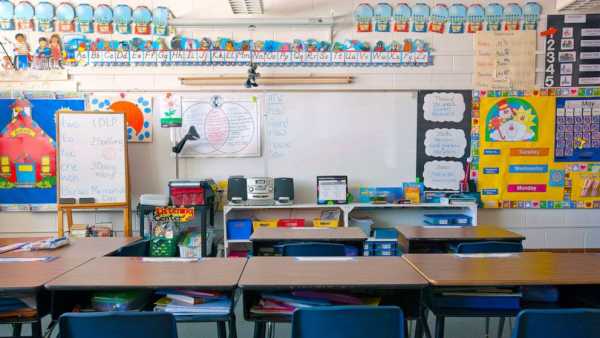
Democratic presidential candidate Pete Buttigieg released a plan Monday appealing to Latinos, voters who have been slow to warm to his campaign compared to his competitors.
The South Bend, Indiana, mayor says he would invest in Latino-owned businesses, reduce the cost of college, expand protections for Latino workers, create a path to citizenship for unauthorized immigrants, and improve access to housing, safe drinking water, and the ballot box.
Buttigieg’s campaign has been criticized in recent months for not doing enough outreach to Latinos, including failing to meet with the Congressional Hispanic Caucus (CHC) and community organizers trying to mobilize Latino voters.
His support among Latinos has lagged in comparison with his rivals: He garnered 2 percent support in a Telemundo poll last month and 5 percent support among Hispanics nationwide in a recent Morning Consult poll.
But a campaign spokesperson said Buttigieg’s working on it: He has met individually with members of the CHC and is working on setting up a meeting with the entire committee, as well as reaching out to elected officials, Latino media, and advocates.
Buttigieg is also focusing on courting Latinos in Nevada, the third state in the primary lineup where about 28 percent of the population is Latino. A third of his organizers in the state identify as Latinx and over 40 percent speak Spanish, according to the campaign. He also based his first field office in the state in the neighborhood of East Las Vegas, where there is a large Latino population.
The plan, released a few days ahead of a planned December debate, is his campaign’s latest outreach effort. Although the plan touches on immigration, Buttigieg has yet to release a full immigration plan, which his campaign said is forthcoming.
“Whether it is the disenfranchisement of the people of Puerto Rico or Latino neighborhoods denied access to clean air and water, Latinos in the United States have been burdened for too long by a legacy of systemic discrimination,” he said in a statement Monday. “As President, I will put an end to this administration’s discriminatory policies and work to dismantle the institutional barriers that have denied Latinos the opportunity to belong in their country.”
Only former Vice President Joe Biden has articulated a similar, if less detailed, plan for the Latino population that includes improving access to health care, public education, and training programs; boosting their economic mobility; reforming the immigration system; curbing gun violence; cracking down on pollution that poses environmental and health risks to their communities; and reducing incarceration.
Sen. Bernie Sanders, meanwhile, has put out a plan for “racial justice” to serve people of color, including Latinos, that also promises to combat voter suppression. Both Biden and Sanders, however, have proved relatively popular among Latinos, earning 26 percent and 18 percent respectively among Democratic Latino voters in last month’s Telemundo poll.
What the plan would do
Buttigieg says he would push for legislation to create a path to citizenship for the almost 11 million unauthorized immigrants currently living in the US, many of whom are Latino. But to pass that legislation would require an unlikely series of events: Democrats would have to flip the Senate and hold the House, and Buttigieg would have to make it an immediate legislative priority.
He would aim to improve representation of Latinos in business, politics, and education by:
- investing $10 billion to fund underrepresented entrepreneurs and award $100 billion in federal contracting funds to underrepresented small business owners, including Latinos
- offering political representation for Puerto Rico and fighting voter suppression of Latino communities
- doubling the number of teachers of color over the next decade
He also calls for improving Latinos’ access to public amenities, including investing $10 billion over a decade in waste disposal in underserved areas, and establishing a commission focusing on disaster relief, particularly for coastal regions such as Florida and Puerto Rico, where there are large Latino populations.
The plan also notes the benefits of other policies Buttigieg has already proposed on health care, education, criminal justice, and affordable housing. His Medicare for All Who Want It plan would allow green card holders to participate in public health insurance programs — a unique proposal among the candidates who have qualified for the December debate.
He also calls for promoting rights in the workforce by passing a $15 minimum wage, reviving restrictions on overtime work and supporting unionization of farmworkers, domestic workers, and gig workers, many of whom are Latino.
Other proposals aren’t specifically targeted at Latinos, but would benefit Latinos in particular, including his plans to improve access to education from pre-K to college and affordable housing.
Sourse: vox.com






